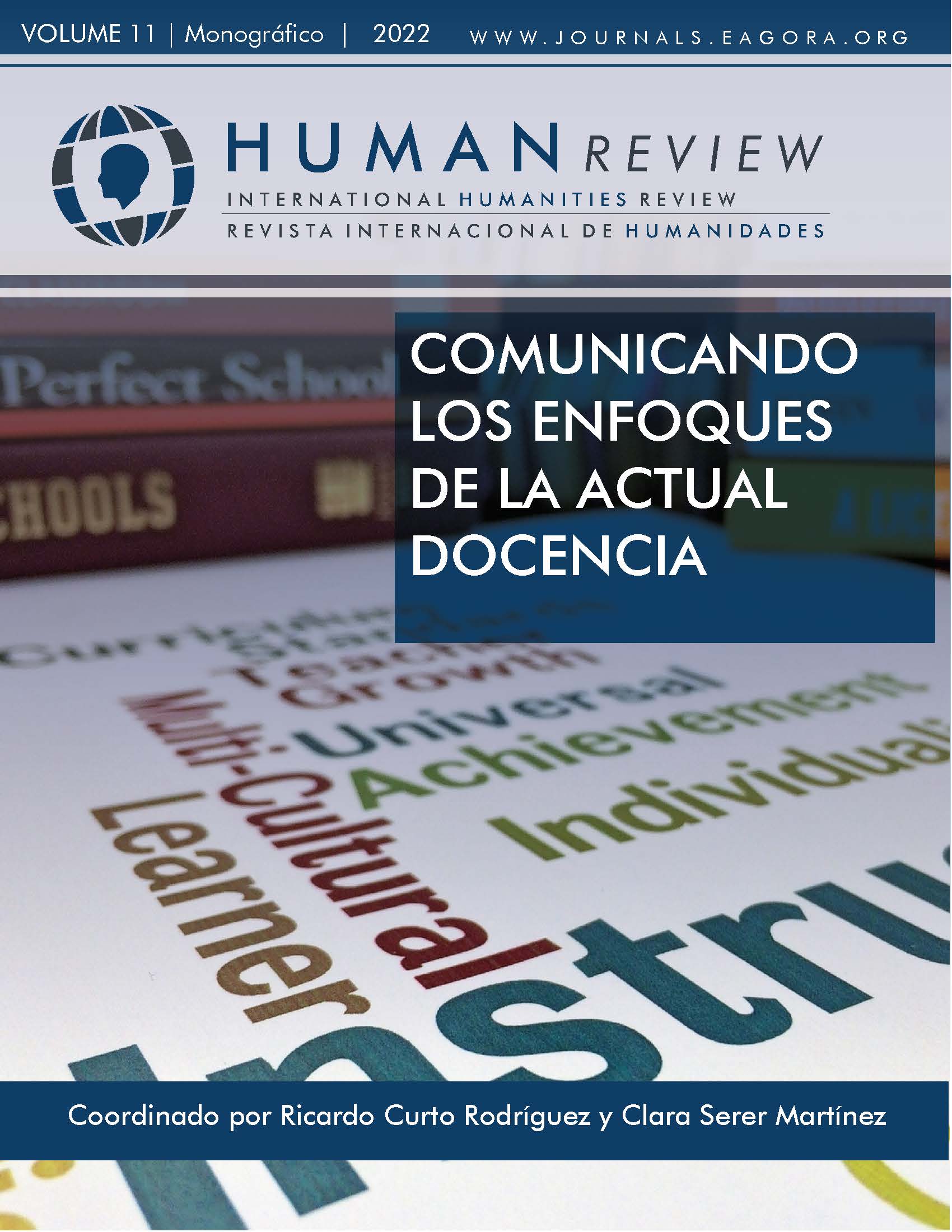Supporting Volitive Strategies and Improving the Experience of Distance Students
DOI:
https://doi.org/10.37467/revhuman.v11.3874Keywords:
Distance Learning, Learning Experience, Self-regulation, Motivation, Volitional Strategies, Tangible Design, StudentsAbstract
The objective of the study was to explore the potential of tangible design to support volition in distance education. Semi-structured interviews were conducted with six students with the aim of focusing on their distance learning experience. The interpretive phenomenological analysis of the interviews evidenced the difficulties that can be mitigated through by implementing volitional strategies such as the structuring time and environment, managing emotions and motivation, and seeking social support. Five tangible objects were proposed to meet the needs of the students: the reward tube, the album of victories, the emotional thermometer, the learning cap and the guardian of time.
References
Achtziger, A. y Gollwitzer, P. M. (2018). Motivation and volition in the course of action. En J. Heckhausen y H. Heckhausen (Eds.). Motivation and Action (pp. 485-527). Springer, Cham. https://doi.org/10.1007/978-3-319-65094-4_12 DOI: https://doi.org/10.1007/978-3-319-65094-4_12
Atkinson, W. (2016). El poder de la voluntad. Greenbooks Editore.
Baumeister, R. F. y Vohs, K. D. (2018). Strength model of self-regulation as limited resource: Assessment, controversies, update. Advances in Experimental Social Psychology, 54, 67-127. https://doi.org/10.1016/bs.aesp.2016.04.001 DOI: https://doi.org/10.1016/bs.aesp.2016.04.001
Berrebi-Hoffmann, I., Bureau, M. C. y Lallement, M. (2018). Makers. Enquête sur les laboratoires du changement social. Seuil.
Borges-Solano, L. Y. (2015). El compromiso escolar de los estudiantes en República Dominicana: validación de su medida y de las variables de su red nomológica [tesis de doctorado, Universitat de València]. Repositorio Institucional https://roderic.uv.es/handle/10550/51020
Boud, D. y Prosser, M. (2014). Appraising new technologies for learning: A framework for development. Educational Media International, 39(3–4), 237–245. https://doi.org/10.1080/09523980210166026 DOI: https://doi.org/10.1080/09523980210166026
Cirillo, F. (2018). The pomodoro technique: The life-Changing time-management System. Random House.
Cosnefroy, L. (2010). Getting to work and keeping on working: Troubles with self-regulation. Revue Française de Pédagogie, 170, 5–15. https://doi.org/10.4000/rfp.1388 DOI: https://doi.org/10.4000/rfp.1388
De Smedt, T. y Daelemans, W. (2012). Pattern for Python. Journal of Machine Learning Research, 13, 2063–2067. https://dl.acm.org/doi/abs/10.5555/2188385.2343710
Deimann, M. y Bastiaens, T. (2010). The role of volition in distance education: An exploration of its capacities. International Review of Research in Open and Distributed Learning, 11(1), 1–16. https://doi.org/10.19173/irrodl.v11i1.778 DOI: https://doi.org/10.19173/irrodl.v11i1.778
Dornyei, Z. y Otto, I. (2007). Motivation in action: A process model of L2 motivation. Applied Linguistics, 4, 43–69.
Efklides, A. (2014). How does metacognition contribute to the regulation of learning? An integrative approach. Psihologijske Topics, 23(1), 1–30.
Fasse, L., Sultan, S. y Flahault, C. (2014). Le deuil, des signes à l’expérience. Réflexions sur la norme et le vécu de la personne endeuillée à l’heure de la classification du deuil compliqué. L’Evolution Psychiatrique, 79(2), 295–311. https://doi.org/10.1016/j.evopsy.2013.03.002 DOI: https://doi.org/10.1016/j.evopsy.2013.03.002
Fredricks, J. A., Filsecker, M. y Lawson, M. A. (2016). Student engagement, context, and adjustment: Addressing definitional, measurement, and methodological issues. Learning and Instruction, 43, 1–6. https://doi.org/10.1016/j.learninstruc.2016.02.002 DOI: https://doi.org/10.1016/j.learninstruc.2016.02.002
Gable, S. L. y Haidt, J. (2005). What (and why) is positive psychology? Review of General Psychology, 9(2), 103–110. https://doi.org/10.1037/1089-2680.9.2.103 DOI: https://doi.org/10.1037/1089-2680.9.2.103
Gaggioli, A., Riva, G., Peters, D. y Calvo, R. A. (2017). Positive technology, computing, and design: Shaping a future in which technology promotes psychological well-being. En Emotions and affect in human factors and human–computer interaction (pp. 477–502). https://doi.org/10.1016/B978-0-12-801851-4.00018-5 DOI: https://doi.org/10.1016/B978-0-12-801851-4.00018-5
Hassenzahl, M. y Tractinsky, N. (2006). User experience - a research agenda. Behaviour & Information Technology, 25(2), 91–97. https://doi.org/10.1080/01449290500330331 DOI: https://doi.org/10.1080/01449290500330331
Heckhausen, J. (2018). Motivation and action: Introduction and Overvies. En J. Heckhausen y H. Heckhausen (Eds.). Motivation and Action (pp. 1-9). Cambridge University Press. https://doi.org/10.1017/CBO9780511499821 DOI: https://doi.org/10.1007/978-3-319-65094-4_1
Houart, M. (2017). L’apprentissage autorégulé : quand la métacognition orchestre motivation, volition et cognition. Revue Internationale de Pédagogie de l’enseignement Supérieur, 33(2). https://doi.org/10.4000/ripes.1246 DOI: https://doi.org/10.4000/ripes.1246
Houart, M., Bachy, S., Dony, S., Hauzeur, D., Lambert, I., Poncin, C. y Slosse, P. (2019). La volition, entre motivation et cognition : quelle place dans la pratique des étudiants, quels liens avec la motivation et la cognition? Revue Internationale de Pédagogie de l’enseignement Supérieur, 35(1). https://doi.org/10.4000/ripes.2061 DOI: https://doi.org/10.4000/ripes.2061
Kaufmann, R. y Vallade, J. I. (2020). Exploring connections in the online learning environment: student perceptions of rapport, climate, and loneliness. Interactive Learning Environments, 1–15. https://doi.org/10.1080/10494820.2020.1749670 DOI: https://doi.org/10.1080/10494820.2020.1749670
Klanten, R., Ehmann, S. y Hübner, M. (2009). Tangible : High Touch Visuals. Gestalten.
Kuhl, J. (2012). Action Control: The maintenance of motivational states. En F. Halisch y J. Kuhl (Eds.). Motivation, intention, and volition (pp. 279-291). Springer. https://doi.org/10.1007/978-3-642-70967-8_19 DOI: https://doi.org/10.1007/978-3-642-70967-8_19
Massar, S. A. A., Csathó, Á. y Van der Linden, D. (2018). Quantifying the motivational effects of cognitive fatigue through effort-based decision making. Frontiers in Psychology, 9(MAY), 843. https://doi.org/10.3389/fpsyg.2018.00843 DOI: https://doi.org/10.3389/fpsyg.2018.00843
Pintrich, P. R. (2004). A conceptual framework for assessing motivation and self-regulated learning in college students. Educational Psychology Review, 16(4), 385–407. https://doi.org/10.1007/S10648-004-0006-X DOI: https://doi.org/10.1007/s10648-004-0006-x
Schueller, S. M. y Seligman, M. E. (2010). Pursuit of pleasure, engagement, and meaning: Relationships to subjective and objective measures of well-being. Journal of Positive Psychology, 5(4), 253–263. https://doi.org/10.1080/17439761003794130 DOI: https://doi.org/10.1080/17439761003794130
Stiensmeier-Pelster, J. y Otterpohl, N. (2018). Motivation at School and University. En J. Heckhausen y H. Heckhausen (Eds.). Motivation and Action. (pp. 783-817) Springer, Cham. https://doi.org/10.1007/978-3-319-65094-4_18 DOI: https://doi.org/10.1007/978-3-319-65094-4_18
Zimmerman, J., Stolterman, E. y Forlizzi, J. (2010). An Analysis and Critique of Research throungh Design: towards a formalization of a research approach. En Proceedings of the 8th ACM conference on designing interactive systems (pp. 310–319). https://doi.org/10.1145/1858171.1858228 DOI: https://doi.org/10.1145/1858171.1858228
Downloads
Published
How to Cite
Issue
Section
License
Those authors who publish in this journal accept the following terms:
- Authors will keep the moral right of the work and they will transfer the commercial rights.
- After 1 year from publication, the work shall thereafter be open access online on our website, but will retain copyright.
- In the event that the authors wish to assign an Creative Commons (CC) license, they may request it by writing to publishing@eagora.org









